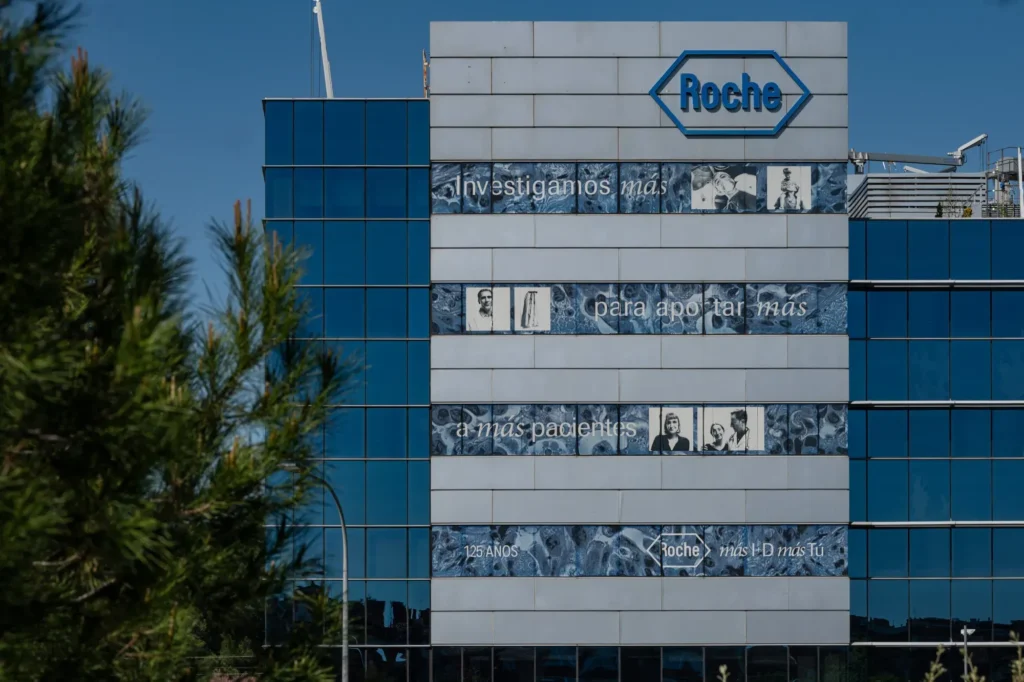Swiss pharma giant Roche has announced an agreement to acquire U.S. biotech firm 89bio for up to US$3.5 billion. The deal includes US$2.4B upfront plus contingent payments tied to clinical milestones. Roche aims to deepen its foothold in treatments targeting liver and cardiometabolic diseases an area of rising need especially in the U.S. and EU. (Reuters)
What 89bio Brings to the Table
89bio’s lead asset, pegozafermin, is an analogue of FGF21, a hormone involved in metabolic regulation. It’s in late-stage development for treating metabolic dysfunction-associated steatohepatitis (MASH) a serious, progressive form of fatty liver disease without currently approved treatments. The acquisition gives Roche control of a pipeline candidate that may offer both anti-inflammatory and fibrosis-reducing benefits in affected patients.
Why This Matters Now
Liver disease rates, obesity, and metabolic disorders are soaring both in the U.S. and Europe. MASH, in particular, affects millions and has few viable therapeutic options; standard care is largely lifestyle changes and managing symptoms. A drug like pegozafermin, if safe and effective, could fill a major unmet need. For Roche, it signals a strong bet on the metabolic/drug-discovery frontier, expanding beyond its traditional strengths in oncology and immunology.
Financials & Deal Structure
Under the deal, Roche will pay US$14.50 per share to take ownership of all outstanding shares of 89bio, plus up to US$6 per share in milestone payments (tied to clinical and regulatory successes). The deal fits Roche’s recent strategy of growing in cardiometabolic and obesity-related therapeutics. It follows their earlier €‐scale deals and collaborations, like with Zealand Pharma. The acquisition is subject to regulatory approvals in relevant jurisdictions, which will include U.S. FDA and agencies in EU member states.
Benefits & Potential Upsides
If the trials succeed, pegozafermin could be one of the first approved therapies for MASH, slowing or reversing liver damage in patients. That could reduce demand for liver transplants, lessen healthcare costs, and improve quality of life significantly. In Europe, where regulatory urgency for metabolic diseases is growing, getting a therapy to market with strong safety data can also offer competitive positioning. For Roche, this strengthens their metabolic pipeline and positions them well against peers investing in obesity and related disorders.
Risks & What to Watch Out For
Of course, there are risks. Drug development is always uncertain late-stage trials can fail, side effects may emerge, and regulatory hurdles (especially for metabolic drugs) are demanding. MASH drugs must show both safety and real improvement in biomarkers and liver histology. Also, patient recruitment, long trial durations, and cost are non-trivial. The EU and U.S. have different standards for approval, so Roche will need to navigate divergent regulatory expectations. Pricing and access will matter; even with approval, getting reimbursement in EU health systems and insurance in the U.S. will be critical.
Other Recent Moves in Biotech & Health Tech
It’s not just Roche. On the innovation front, there are other promising developments:
- Luxa Biotechnology reported early human trial results for a therapy treating dry age-related macular degeneration (dry AMD) using RPE stem-cell therapy. Patients with severe vision loss saw an average gain of +21.67 ETDRS letters over 12 months.
- AskBio, a U.S. gene therapy company, has completed enrollment in its Phase 1 trial of AB-1005 for multiple system atrophy – Parkinsonian type (MSA-P). The therapy introduces GDNF via AAV2 vector into the putamen region to try to slow disease progression.
- Sanofi’s experimental gene therapy SAR402663 for neovascular (wet) AMD has been granted FDA Fast Track designation. The study is still early but signals regulatory support for vision-restoring treatments.
What to Expect Next
In the coming months, keep an eye on the outcomes of the late-stage trials for pegozafermin, especially data on liver fibrosis reversal and long-term safety. Also watch regulatory filings, pricing decisions, and competitive responses (other companies with MASH or fatty liver drug candidates). For patients, advocacy groups, and clinicians, monitoring how quickly the drug moves through approval in both U.S. and European agencies will be crucial.
My Take
This Roche-89bio acquisition could be a real inflection point in treating liver disease. For too long, MASH has lurked as a condition with few effective treatment options. Roche’s deep pockets, regulatory experience, and global reach position this deal as more than just corporate maneuvering it might actually deliver something meaningful for patients. But success isn’t guaranteed. Pegozafermin will need to deliver a strong safety profile, real clinical endpoints, and smart access strategies. If it does, it could bring hope to millions. If not, it risks becoming another ambitious biotech story with high expectations and mixed outcomes.




